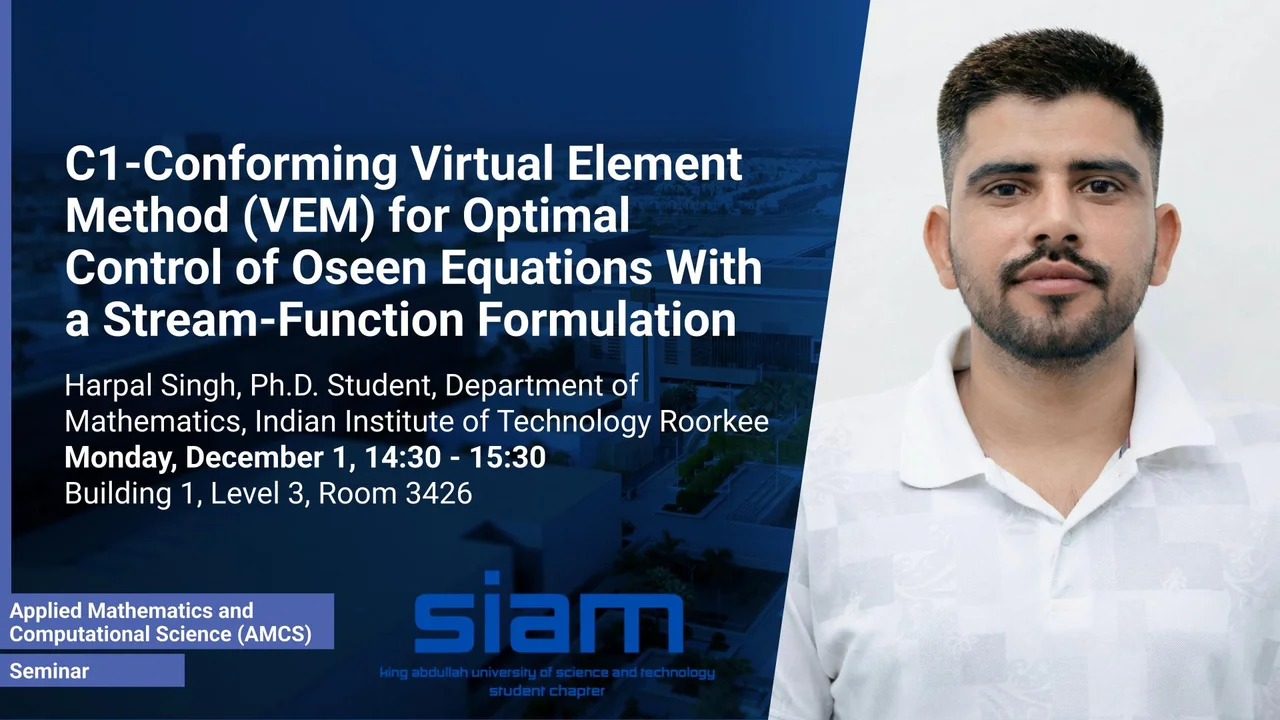
C1-Conforming Virtual Element Method (VEM) for Optimal Control of Oseen Equations with a Stream-Function Formulation
This talk presents a C¹-conforming Virtual Element Method for the optimal control of generalized Oseen equations, detailing its discretization strategies, theoretical error estimates, and numerical validation on polygonal meshes.
Overview
Over the past few decades, optimal control has emerged as a central theme in applied mathematics, driven by its wide-ranging applications in engineering and the physical sciences. In this talk, I will introduce the basic structure of optimal control problems and then present a C¹-conforming Virtual Element Method (VEM) for the optimal control of the generalized Oseen equations, formulated via a stream-function on simply connected polygonal domains. The method employs an H2-conforming discretization of order k≥2, a novel discretization for the convective term, and a variational discretization of the optimal control. We derive optimal a priori error estimates for the stream-function in the H1 and H2 norms and for the control in the L2 norm, assuming standard conditions on polygonal meshes. The framework also enables the recovery of velocity, vorticity, and pressure through appropriate projection operators. Numerical experiments on a variety of polygonal meshes, including configurations with boundary layers, verify the theoretical results. The ideas extend naturally to optimal control problems governed by the Brinkman and Stokes equations.
Presenters
Harpal Singh, Ph.D. Student, Department of Mathematics, Indian Institute of Technology Roorkee
Brief Biography
A Ph.D. student in the Department of Mathematics at the Indian Institute of Technology Roorkee, India, he works on the mathematical analysis and numerical approximation of PDE-constrained optimal control problems. He uses a range of discretization techniques, including finite element, hybridized discontinuous Galerkin, discontinuous Galerkin, and virtual element methods, to develop efficient and highly accurate algorithms for control-constrained systems. His interests also include the derivation of a priori and a posteriori error estimates, which play a key role in designing effective adaptive mesh refinement strategies.